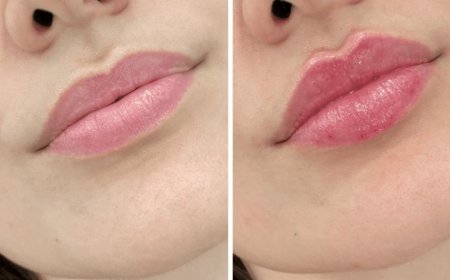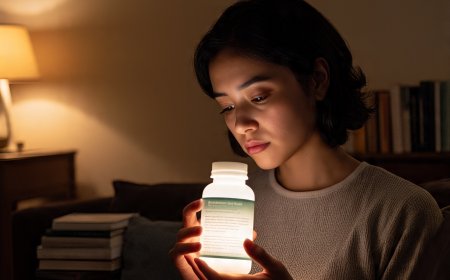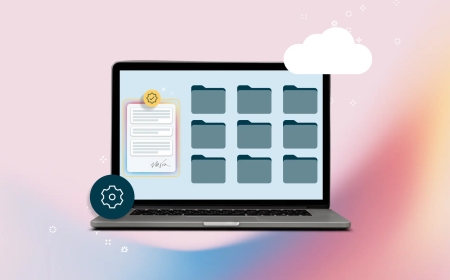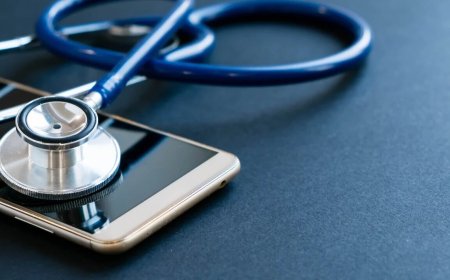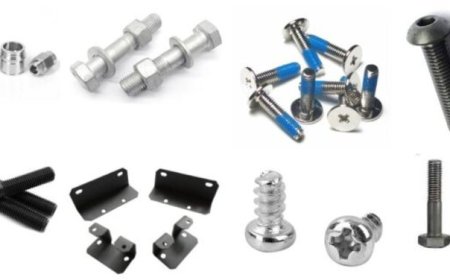How to Improve Kidney Function?
Discover practical tips to boost kidney function naturally—through hydration, balanced nutrition, and healthier daily habits.

Your kidneys might not get much attention, but they do a lot for yourbody. From filtering waste to balancing fluids, they work nonstop. But like every other part of your body, they also need care. So, how can you improve kidney function in your daily life? The answer is easier than you think. It all starts with better habits, regular awareness, and small changes that add up over time.
In this blog, well walk through practical steps you can take to support your kidneys. Youll learn about healthy eating habits for kidney care, staying hydrated, the role of exercise, and much more.
Why Kidney Health Should Be a Top Priority
Most people dont think about their kidneys until something goes wrong. Thats because kidney problems often show no early signs. However, the kidneys are key to your overall health. They remove waste, keep blood pressure in check, and balance fluids and minerals in your body.
Moreover, poor kidney health can affect your energy, sleep, and heart. If your kidneys start to fail, toxins build up. That can lead to serious issues.
Therefore, taking care of your kidneys early is always better than dealing with damage later.
What You Eat Matters: Healthy Choices for Better Kidney Health
Your daily meals play a huge role in your kidney health. Eating the wrong foods can strain the kidneys. On the other hand, the right diet can support their function.
Additionally, try to eat more whole foods and fewer packaged items. Processed foods often have too much salt, sugar, and unhealthy fats. These ingredients can lead to high blood pressure, which harms your kidneys.
Some smart food choices include:
-
Fresh fruits and vegetables (go for apples, cabbage, and cauliflower)
-
Whole grains in small amounts
-
Skinless chicken or fish (instead of red meat)
-
Healthy fats like olive oil
Avoid canned items, fast food, and high-sodium snacks. Too much salt can raise blood pressure, and thats bad news for your kidneys. Drink water instead of sugary drinks. And if you have diabetes, keep your sugar levels in control.
Improving your diet doesnt mean giving up taste. It means making smarter food swaps and knowing whats on your plate.
Are You Drinking the Right Amount of Water?
Water helps your kidneys filter waste. Without enough of it, toxins can build up in your blood. But heres the thing: drinking too much water doesnt help either.
Generally, about 810 glasses a day is enough for most people. But your needs may vary based on your weight, climate, and activity level.
Furthermore, try to drink water regularly throughout the day. Dont wait until you feel thirsty. Dark yellow urine is often a sign that you need more water. Clear or light-colored urine means you're doing well.
Lastly, avoid drinking large amounts at once. That puts pressure on the kidneys instead of helping them.
Move More, Worry Less: How Physical Activity Supports Kidney Function
Exercise isnt just good for your heart. It also supports your kidneys. When you move more, you reduce the risk of high blood pressure and diabetes, which are leading causes of kidney damage.
You dont need to join a gym. Walking, stretching, and yoga are good enough. Try to get at least 30 minutes of physical activity most days.
Additionally, staying active helps control your weight. This reduces pressure on your organs and keeps your blood flowing smoothly.
Consistency matters more than intensity. You can start small and build up over time. Even daily movement around the house can make a difference.
Medication, Supplements, and Monitoring: What You Need to Know
Some medicines, especially painkillers like ibuprofen, can hurt your kidneys if used too often. Always talk to your doctor before taking new drugs or supplements.
Furthermore, dont assume that natural products are always safe. Some herbal products can actually harm your kidneys.
Its also smart to get your kidney function tested if you have risk factors. Ask your doctor for basic tests like:
-
Serum creatinine test
-
GFR (glomerular filtration rate)
-
Urine albumin test
These tests show how well your kidneys are working. You dont need to wait for symptoms to get tested.
Stress, Sleep, and Kidney Health: The Overlooked Connection
Poor sleep and high stress levels can hurt your kidneys over time. That might surprise you, but theres a strong link.
When you're stressed, your blood pressure rises. High blood pressure is bad for your kidneys. Lack of sleep also affects hormone balance, which can slow kidney repair.
Here are a few tips that can help:
-
Create a bedtime routine
-
Avoid screens before sleep
-
Practice deep breathing
-
Spend time in nature or with loved ones
Furthermore, even 7 to 8 hours of restful sleep can do wonders for your entire body, including your kidneys.
Common Myths About Kidney Function Whats Actually True?
You may have heard a few things about kidney health that simply arent true. Lets clear them up:
-
Myth: If I dont feel pain, my kidneys are fine.
Truth: Kidney disease often has no early symptoms.
-
Myth: Drinking lots of water detoxes kidneys.
Truth: The kidneys detox your body naturally. Water helps, but too much isnt better.
-
Myth: Only older people have kidney issues.
Truth: Kidney problems can start at any age.
Avoiding myths helps you make better health decisions. When in doubt, ask your doctor.
When to Seek Medical Advice (And Why It Matters)
Sometimes, even when you follow all the right steps, you still need professional help. Knowing when to visit a doctor can make a big difference.
Here are a few warning signs to look out for:
-
Swelling in your ankles or hands
-
Tiredness or weakness without reason
-
Changes in your urine (color or amount)
-
Shortness of breath
Furthermore, if you have high blood pressure or diabetes, make kidney checkups part of your routine care.
Dont wait until things get worse. Early action can prevent long-term damage.
Conclusion
Your kidneys are always working hard behind the scenes. They clean your blood, remove waste, and balance your bodys fluids. But they cant do it alone. You need to support them through healthy habits and timely care.
Start with your plate, focus on healthy habits. Then drink the right amount of water, stay active, sleep well, and manage stress. Avoid too much medication, and always read labels before trying new supplements. Get tested when needed and talk to a doctor if you notice anything unusual.
Lastly, if you or someone you know wants to go a step further, exploring Clinical Trials at Koch Research Institute could be a helpful next move. Its all about staying informed and taking the right stepsone at a time.






